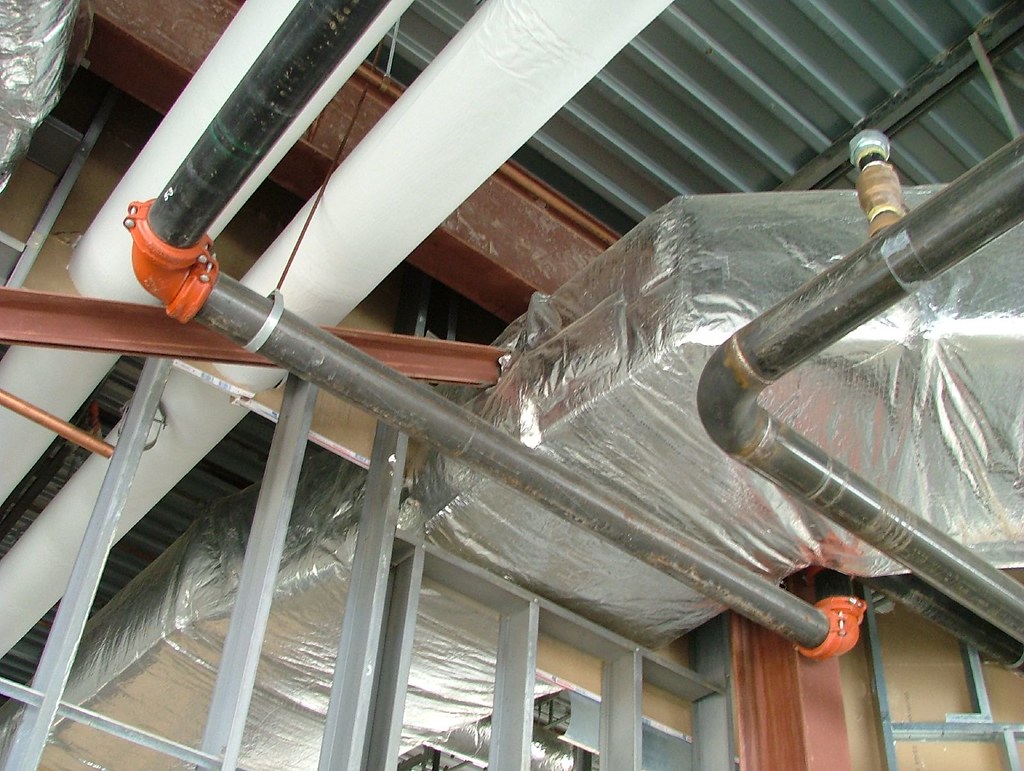February 3rd, 2021


Ductwork is a critical component of your home’s heating & cooling system, and ductwork damage can lead to serious problems.
Image by Jeffrey Beall
Age
Steel ductwork can last 25 years or so, but can begin to deteriorate after as little as 15 years. Installation practices have a tremendous influence on ductwork’s integrity. Fiberglass board ductwork generally doesn’t do as well, particularly in wet locations such as crawlspaces, or in areas with severe temperature extremes like attics. Unfortunately, these are often the locations where ductwork is installed. Since Central AC systems usually last, between 10 and 15 years, if you’re replacing your central AC, it’s probably time to check on your ductwork as well.Animal Damage
Animals, particularly rodents, like find their way into ductwork. Ductwork is cool in the summer and warm in the winter, so while these creatures stay comfortable, your HVAC system will have a harder time keeping you comfortable. Animals deposit waste, and the problem gets even worse if the animals die in your ducts. Their carcasses will create HVAC odors and decomposition products that your ductwork will then circulate throughout your home – that stinks! (Read more about preventing pests from invading your HVAC system here).Corrosion
If your ducts are made of sheet metal, corrosion is something to look out for. Corrosion can cause the metal to weaken and eventually fall apart. Time and moisture are the most common causes of corrosion. While the passage of time is unpreventable, there are steps you can take to reduce the presence of moisture on your ducts, a problem also known as “sweating ductwork.”Crushes, Collapses and Disconnections
In some areas of your home, such as your garage or attic, there may be some exposed ductwork – but that doesn’t mean it’s OK to store items on top of the ductwork. Using your ductwork as a workbench can lead to dents or even cause a section to totally collapse. This can lead to air loss, which will mean wasted energy. Poorly installed or old ductwork can come apart at the joints, leaking conditioned air into your basement, crawlspace, or attic, costing you money and affecting air distribution and comfort.Mold and Biological Growth
When ductwork becomes dirty, mold, mildew, and other biological growth can become entrenched. This is especially true of fiberglass ductboard, which has a rough, dirt-catching surface. This can send unhealthy spores and other byproducts into the home, and deteriorate the ductwork as well.Preventing Ductwork Damage
Proper maintenance can help prevent these problems from becoming too serious, but the first step in ensuring a well-functioning ductwork system is choosing the right company to install it. If ductwork isn’t installed properly, it won’t last as long or do its job very well. Even without damage, ductwork that isn’t properly insulated will also lead to performance issues. Sometimes, a repair as simple as sealing and insulating the ductwork will help, but other times, it’s not that easy. Inefficient ductwork means an inefficient HVAC system, one that works harder and runs longer than it should. Whatever issues your HVAC and its ductwork are experiencing, the experts at SG Heating & Air Conditioning LLC can pinpoint the cause and recommend the best solution. We’re proud to be a leading provider of HVAC repair and replacement in Mercer County, NJ, and you can count on us. So contact us today at 609-448-1273! or by using this form!Looks like The Boss was talking about ducts, not ducks, after all. I figured that out based on a simple de-duct-ion. Woof!

All Content © 2021 SG Heating & Air Conditioning LLC – All Rights Reserved


